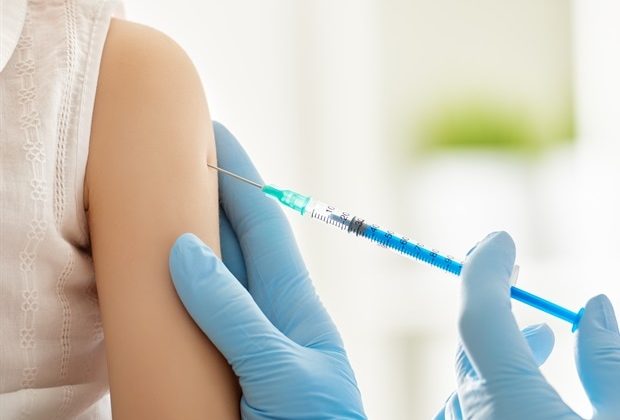New York Blood Center’s Project ACHIEVE and Columbia University’s Columbia Research Unit are working in partnership for the New York City effort to advance the use of messenger ribonucleic acid (mRNA) technology in an HIV preventive vaccine study – HVTN 302. The global research effort is sponsored by the HIV Vaccine Trials Network (HVTN), headquartered at the Fred Hutchinson Cancer Research Center in Seattle, WA and funded by the National Institute of Allergy and Infectious Diseases (NIAID) of the National Institutes of Health, and sponsored by NIAID.
The Phase 1 trial, titled HVTN 302, is the second trial of its kind and will be enrolling up to 108 people across 10 sites in the United States to test 3 different experimental vaccines against HIV using the mRNA vaccine technology that has been successful in fighting COVID-19. The vaccines are experimental, meaning that they have not been approved by the U.S. Food and Drug Administration (FDA). Researchers will study the safety of and immune responses to the different vaccines, focusing on which might be the best vaccine candidate as well as what might be the best dosage.
Both organizations have an extensive history of conducting research spanning all phases of HIV vaccine clinical research. They have conducted longstanding work in community engagement and recruitment throughout New York City, developing a reputation for enrolling a diverse pool of study participants and addressing mistrust in vaccine trials among racial, ethnic, and sexual minority communities.
“Seeing the first participant in HVTN 302 receive their initial injection of the study vaccine at our clinic site provides me hope that we can make a major contribution to the scientific community’s goal to prevent the spread of HIV. Globally more than thirty-seven million people are living with HIV. There have been major advances in HIV prevention, care, and treatment, but a vaccine will impact the broadest segment of society. We’re looking forward to applying what we learned from the COVID-19 vaccine trials to our research on this potentially groundbreaking vaccine,” stated Hong Van Tieu, MD, MS, Head, Laboratory of Infectious Disease Prevention, LFKRI, New York Blood Center’s Project ACHIEVE.
We are immensely excited to be working on this significant advancement in HIV vaccine research. We have been studying various HIV vaccine products for decades and the science continues to progress. The major advancements in COVID-19 vaccine development involved the use of the mRNA technology. Applying this technology to the realm of HIV vaccine research is a major turning point. Community members in New York City continue to enroll in this study which will help further the global effort to develop an HIV preventive vaccine.”
Magda Sobieszczyk, MD, MPH, Principal Investigator, Columbia University’s Columbia Research Unit
The HVTN 302 trial is evaluating three experimental vaccines; each participant in the trial will get one of the vaccines, all of which use mRNA technology. The International AIDS Vaccine Initiative (IAVI) on behalf of Scripps Consortium provides these study vaccines, developed by researchers at Scripps Research, for the study for HIV/AIDS Vaccine Development (CHAVD).
These study vaccines are manufactured using mRNA technology, a piece of genetic code carried into your body by the vaccine as a message with instructions. The mRNA technology was developed by Moderna for the COVID-19 vaccine, which instructs the body’s cells to make the SARS-CoV-2 spike protein. Instead of showing the immune system pieces of HIV, the study vaccines carry instructions that show human muscle cells how to make small pieces that resemble parts of HIV but are not actual pieces of the virus. Therefore, participants cannot get HIV from the vaccines.
When people get a vaccine injection in the muscle of their arm, the cells in that muscle will get the instructions and start to make the different types of HIV pieces and display these pieces on the surface of the muscle cell. The immune system will then be able to see these HIV pieces and learn how to recognize them.
Researchers hope that the immune system will respond by making antibodies and T-cells that could fight HIV if a person is ever exposed to the virus in the future.
The mRNA instructions do their work in the part of the muscle cell called the cytoplasm and only remain in the body for a couple of days before they break down naturally. The mRNA does not enter the nucleus of the cells, which is where human DNA is located. Therefore, the mRNA cannot interact with human DNA.
The study vaccines have not been given to people before. Prior research in animals was promising and found to be safe. The HVTN 302 trial is conducted in a way in which safety is carefully monitored.
The process is simple: participants indicate that they are interested, they complete an online screener, and staff contact them to complete a pre-screen over the phone. They then schedule their first study visit, where the participant receives more information on the study, signs consent forms and undergoes a physical exam. After that, if the participant is approved for the study, they are scheduled for their first vaccination.
Project ACHIEVE and Columbia University are appealing to community members to screen for and join the HVTN 302 trial. As with recent advances in the COVID-19 vaccine development, study participants are essential in furthering the science. Tens of thousands of people have participated in the studies that led to the development of the lifesaving COVID-19 vaccines. As with the COVID-19 vaccine trials, Project ACHIEVE and Columbia University highly encourage those from racial, ethnic and sexual minority communities to participate in the study, as a diverse pool of participants is essential in the success of the study.
New York Blood Center
Posted in: Medical Research News | Disease/Infection News
Tags: AIDS, Allergy, Antibodies, Blood, Cancer, Cell, covid-19, Cytoplasm, DNA, Food, Genetic, HIV, HIV/AIDS, Immune System, Infectious Diseases, Laboratory, Muscle, Protein, Research, Ribonucleic Acid, SARS, SARS-CoV-2, Spike Protein, Vaccine, Virus
Source: Read Full Article
